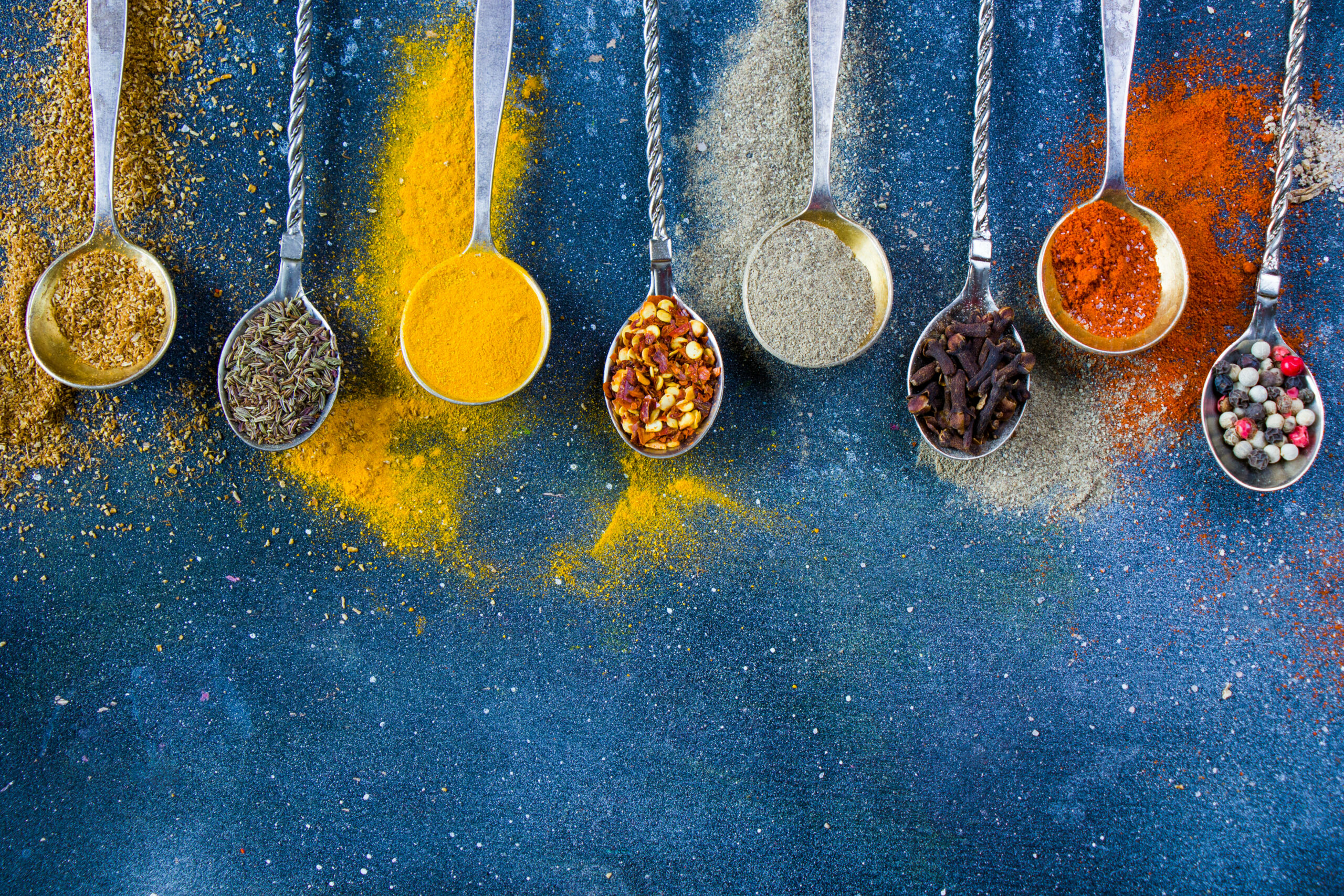Chef’s Playground
How a chef residency is designed to shake up the dining scene.
When Freedom Street Social opens in Arvada near the intersection of Indiana Street and West 91st Avenue in the growing Candelas development later this spring, it will have the mini-restaurants—hot chicken, burgers and shakes, deep-dish pizzas—that have come to define many a food hall. But the 12,000-square-foot space also aspires to be a culinary lab and a community gathering space, and at the crux of that is the Chef Kitchen, a new and innovative chef-in-residence program.
The setup will bring in chefs from around the state and country (and maybe even world, someday) for one-month pop-ups. During their residency, they’ll have culinary carte blanche and total creative control over their menus while earning an executive chef salary. All business costs—food, supplies, and staffing—will be covered by Freedom Street. The food hall will also offer built-in marketing, an enticing prospect for chefs eager to get their names out there. The Chef Kitchen is designed to stoke creativity that will eventually filter out into the larger culinary scene.
Anyone who knows (or knows of) chef Tajahi “Taj” Cooke knows that his brain is always spinning about how best to shake things up—how best to innovate in a way that strengthens and connects the community. It should surprise no one that Cooke is the brainpower behind both Freedom Street Social and the Chef Kitchen. He dreamed it up with a mission to jump-start Denver’s greater culinary imagination.
In fact, the Chef Kitchen grew out of the Supper Club, which Cooke created in March 2021 to serve as a catalyst for collaboration within the local food scene. “The Supper Club has allowed chefs to go out there and build their brands, showcase their talents, and connect more with the community rather than being stuck behind someone else’s menu in the back of house,” Cooke says. Now, at Freedom Street Social, that concept will be writ large with a broader creative mission.
Amped-up creativity also means the project has potential to disrupt redundancy, which exists in any creative market—music, art, fashion, and, inevitably, the food scene, too. Insiders and careful observers may remember pre-pandemic, sotto voce grumblings that Denver’s restaurant landscape was (with a few exceptions!) becoming oversaturated and stagnant.
At its core, the Chef Kitchen is designed to blow up the creative paradigm, nudge past long-accepted limitations, and act as a revolving door that ushers in new ideas. “I think the beauty of a rotational concept like the Chef Kitchen is that it allows us a taste of the world right in our backyard,” Cooke continues.
“I think the beauty of a rotational concept like the Chef Kitchen is that it allows us a taste of the world right in our backyard.”
Taj Cooke
The pandemic has undoubtedly reshaped restaurants’ business models, but it also forced a creative shake-up. It challenged chefs to think differently, with many examining how they cook, why they cook, and what they want to do differently.
Even wildly talented chef Michael Diaz de Leon found himself constantly looking at what other chefs were doing pre-pandemic. Then, during the March 2020 shutdown, he was furloughed from Denver’s Old Major and began making sandwiches for Leevers Locavore, a gourmet grocery store. With nothing to lose, his creativity went into overdrive as he found and nurtured a niche. He homed in on seasonal ingredients sourced within 200 miles, worked closely with farmers, and celebrated his Mexican-American heritage through food. “My creativity comes from cooking things that make me happy,” he says. That might seem a simple, even clichéd, shift, but it has launched the next phase of Diaz de Leon’s career. He is now the chef at Brutø, an innovative, intimate restaurant on Denver’s Dairy Block that provides an omakase-style experience, but with Latin American-inspired dishes.
“My creativity comes from cooking things that make me happy.”
Michael Diaz de Leon
At Brutø, Diaz de Leon leads a small group of guests through seven to nine courses. “We’re only 15 seats, but each of those 15 seats is important,” he says. Guests don’t receive menus, but they do receive dishes built around what’s currently available from farmers and what ferments are in the works. “It gives us the opportunity to truly connect with our guests and showcase what we’re doing,” he explains. “We get to walk them through the dishes, and it’s experience driven.” At the end of the dinner, Diaz de Leon might pass along a recipe, which serves as a way of integrating and situating a single dinner into diners’ lives.
In essence, this chef-driven experience is the model for the Chef Kitchen. Guest chefs can test out an original idea or build on an existing concept. The turnkey program will offer built-in support so chefs can focus on one thing and one thing only: making great food and connecting with diners in a meaningful way. With funding from Freedom Street, resident chefs will earn a salary of $1,500 per week (that translates to $78,000 per year, which is above the average executive chef salary of $72,699 in Colorado, according to Salary.com). Freedom Street will also pay for all food, beverage, and labor costs, and will provide a dedicated marketing team. Chefs will also have the opportunity to host classes, demonstrations, and tastings—all of which will come with additional compensation.
Ultimately, the next wave of chef-driven concepts will push direct interaction between the diner and the chef to the forefront. Another throughline, hopes Cooke, will be deeper exploration of global cuisines at a time when travel remains complicated. This is where the Chef Kitchen has the potential to excel. “We will be bringing in chefs with different backgrounds—individuals who will take you to different lands through their food,” he expands.
Cooke will try to lure chefs like Dustin Brandt, previously of Frasca Food and Wine in Boulder and now of Underground Fine Dining, to the program. Over the last year, Brandt has found himself revisiting travel journals as a muse for new menu items. “I am seeing them in a new light, similar to re-reading a book later on in life with new perspectives,” he says. Brandt launched his catering company Underground Fine Dining in 2014 so he wouldn’t be tied to a single menu and could provide private dining experiences for any occasion. “Southeast Asia, India, and Mexico are on my drawing board lately. Rather than looking to Michelin-starred chefs for inspiration as I once did, I am leaning more toward finding the traditions and techniques handed down through generations and performed in humble settings all over the world,” he explains.
In the last 18 months, Brandt’s business concept has become even more relevant as he witnessed the dinner party make a resurgence, with many people wanting to dine at home with close friends instead of going out to eat. “I felt like the pandemic bent rules, and shook things up enough for me to have the courage to put things like a duck confit bánh mì on the menu,” Brandt says. “This opened a portal to explore flavors and cuisines that I really enjoy and get deep satisfaction from cooking and learning about.”
“I felt like the pandemic bent rules, and shook things up enough for me to have the courage to put things like a duck confit bánh mì on the menu.”
Dustin Brandt
Of course, as chefs turn to other parts of the world for inspiration, they must proceed with caution and mindfulness, aware that creativity can scrape up against cultural appropriation. Honoring the cultural origins of food is tricky but critical, Brandt says. Knowing how certain ingredients ended up in specific regions of the world is a good starting point. Understanding exploitation and oppression is a prerequisite to understanding how your food may be perceived by the public. “I feel like if you’re selling food from another culture it has to come from passion, love, and respect rather than for trend and profit,” he says.
One of the central intentions of the Chef Kitchen is to shake up the local dining scene by introducing people to new foods, cultures, and perspectives. This is something that Cooke, who is Jamaican and had his entire passport stamped by the age of 16, has already been doing. He comes by it naturally, with much of his inspiration coming from the global dishes he’s tried: live squid dipped in soy sauce in Japan, tempura fried crab in Vietnam, ostrich and alligator in Australia. In all cases, the food and the gathering around it was a gateway to understanding the culture. “As humans, we aren’t meant to isolate from one another,” Cooke says. “It’s not good for the mind, brain, or the heart. We’re all looking for a connection. As a chef, I feed off of that.”
Applications for the one-month residencies at the Chef Kitchen opened in November. While the full roster has yet to be solidified and announced, Denver chef Taylor West is the first confirmed participant. A Johnson & Wales graduate, West spent time traveling in Singapore, Malaysia, and Thailand, and he’s harnessed those experiences while teaching dumpling classes and leading sushi tutorials, as well as hosting pop-up events like dim sum brunches through his business, Get Fed Concepts. In addition to creating a menu, West’s September 2022 residency could involve connecting with diners through dumpling-making workshops.
Like Brandt and Diaz de Leon, West says the pandemic strengthened his creativity. Being furloughed from Urban Farmer forced him to examine his love of being a chef. He’s since put on virtual cooking classes, which were in high demand, as well as sushi-rolling classes at breweries. He and chef Taylor Stark (of the Wolf’s Tailor) hosted supper clubs, and took guests on tours of Japan, Thailand, Singapore, and China with their menus. And recently, he’s partnered with local comedian Brandon Patrick to pilot a cooking show.
West also finds inspiration in food-related activism—whether that’s bringing nutritious meal options to food deserts or having fruitful discussions about the mental health of chefs. He notes that the pandemic has given more power to chefs, allowing them to negotiate better hours and wages above $15 or $16 an hour.
West also points to a need for more diverse cuisine in prominent parts of the city. Simply put, he says, Denver’s food scene lacks diversity downtown and in surrounding neighborhoods when it comes to both the chefs who are cooking and the food that’s on menus. For his part, West (who is Irish, Nigerian, and Sicilian) tries to mitigate this by studying the history of foods he encounters in other cultural traditions. He relies heavily on chef’s stories when he’s cooking food from other cultures. “For me to cook the style of Asian food I do, I felt that I needed to travel to these places and cook with those who do it best,” he says.
“For me to cook the style of Asian food I do, I felt that I needed to travel to these places and cook with those who do it best.”
Taylor West
Cooke’s hope is that through the Chef Kitchen platform, the world will become Denver’s oyster. With rotating chefs focusing on robust innovation and diners’ curiosity growing to include a wide range of ingredients, culinary styles, and techniques, the globe suddenly becomes smaller, more intimate, and more connected. And that, says Cooke, is the essence of creative awakening.
Ad:


